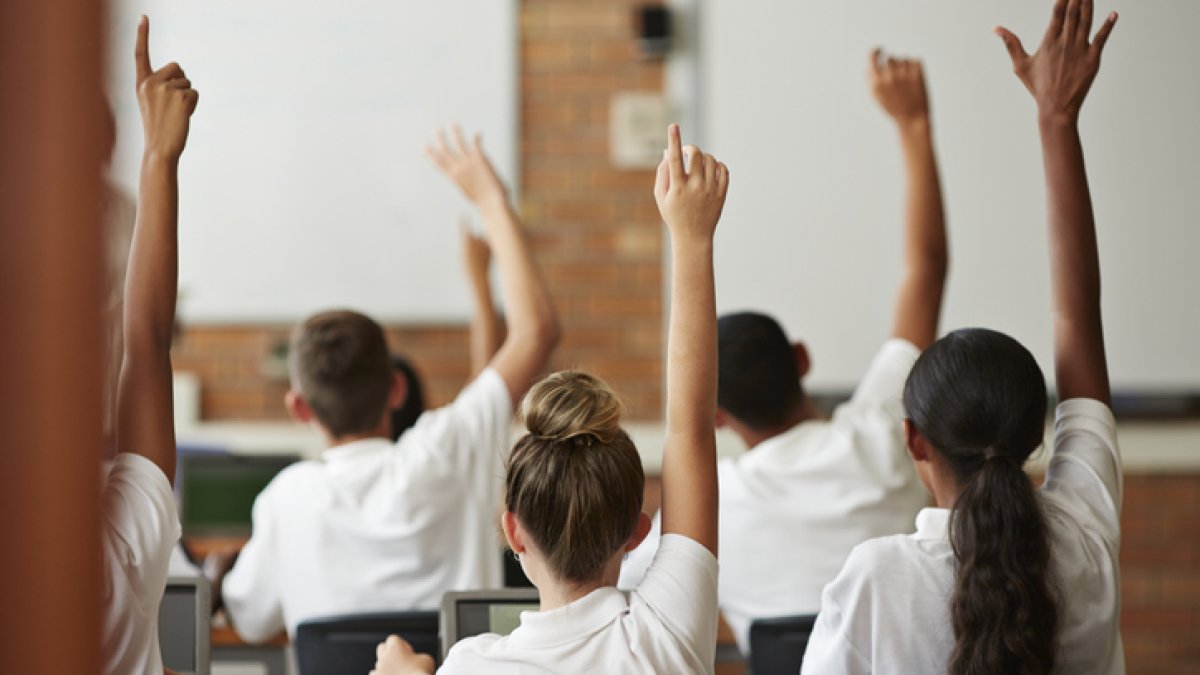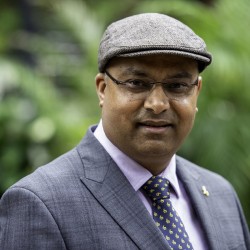‘National Conversation’ needed to address air pollution in classrooms
A 'national conversation' is needed to combat the worrying levels of air pollution in some city-based classrooms, say researchers from the University of Surrey.

Surrey's Global Centre for Clean Air Research (GCARE) has found that the levels of pollution – particularly coarse air pollution particles (PM10) and CO2 – were higher during classroom hours than outside of working hours and at weekends.
Peak concentration levels of PM10 were present at 100cm – the average sitting height of children. The team also found that after attaining the peak, PM10 levels start to decrease with further height. However, classroom CO2 increased with height until above 225 cm height.
Professor Prashant Kumar, senior author and Founding Director of GCARE, said:
"While plenty has been said about road-based pollution experienced when children are in a school playground, our research suggests that we need a thoughtful public conversation about the pollution levels in the classroom.
"Classroom activities such as resuspension due to movement contributed towards more than 75 per cent of the coarse air pollution particles. This suggests that common sense strategy, for example, ensuring floors and surfaces are kept clean during classroom hours, could minimise these levels."
The research took place in a North London school, where the researchers monitored 18 locations of a Year 3 classroom. The maximum occupancy of the classroom was 23 children – between the ages of seven and eight years old – who were supervised by two teachers.
The research team found that the strategic placement of air purifiers is important as it can help to improve concentration levels in a classroom. If placed in high footfall areas, air purifiers were shown to reduce up to 51 per cent of the average classroom concentration of PM10 particles compared with the base case (no air purifiers) when they were placed in unpaired mode.
Professor Kumar continued:
"We found that high-efficiency particulate air (HEPA) purifying systems did make a significant improvement to the PM10 levels of a classroom. I appreciate that these systems are not inexpensive and are out of reach for many schools in the country. We recommend that, if possible, air purifiers are placed at children's sitting height as close to the teaching areas as possible.
"Our strongest recommendation is for decision-makers and school management bodies to install real-time pollutant monitoring devices. This will allow schools to identify pollution hot spots, which is the first step of devising effective strategies to extract it from the classroom."
The research was part of the EPSRC-funded CO-TRACE project – a collaboration between the Universities of Cambridge, Surrey and Imperial College London, to assess the risk of airborne COVID-19 transmission in schools and evaluate the effectiveness of mitigation measures.
Professor Paul Linden from the University of Cambridge and Principal Investigator of the CO-TRACE project, says:
“The CO-TRACE team strongly support the recommendation to install real-time air pollution monitors in schools. We believe that the information provided by these monitors will give agency to teachers and the senior leadership in schools to take the necessary measures to improve indoor air quality in the classroom and enhance the health and well-being of staff and students.”
The research has been published by Environmental Research and builds upon earlier work, including holistic recommendations such as school guidance.
###
Notes to editors:
- Reference: Kumar, P., Rawat, N., Tiwari, A., 2023. Micro-characteristics of a naturally ventilated classroom air quality under varying air purifier placements. Environmental Research 217, 114849.
- CO-TRACE (COvid-19 Transmission Risk Assessment Case studies - Education Establishments) project is funded by the EPSRC under the COVID-19 call under Grant No. EP/W001411/1EP/W001411/1.
- Professor Prashant Kumar is available for interview.
- For more information, please contact the University of Surrey's press office via mediarelations@surrey.ac.uk
Media Contacts
External Communications and PR team
Phone: +44 (0)1483 684380 / 688914 / 684378
Email: mediarelations@surrey.ac.uk
Out of hours: +44 (0)7773 479911
